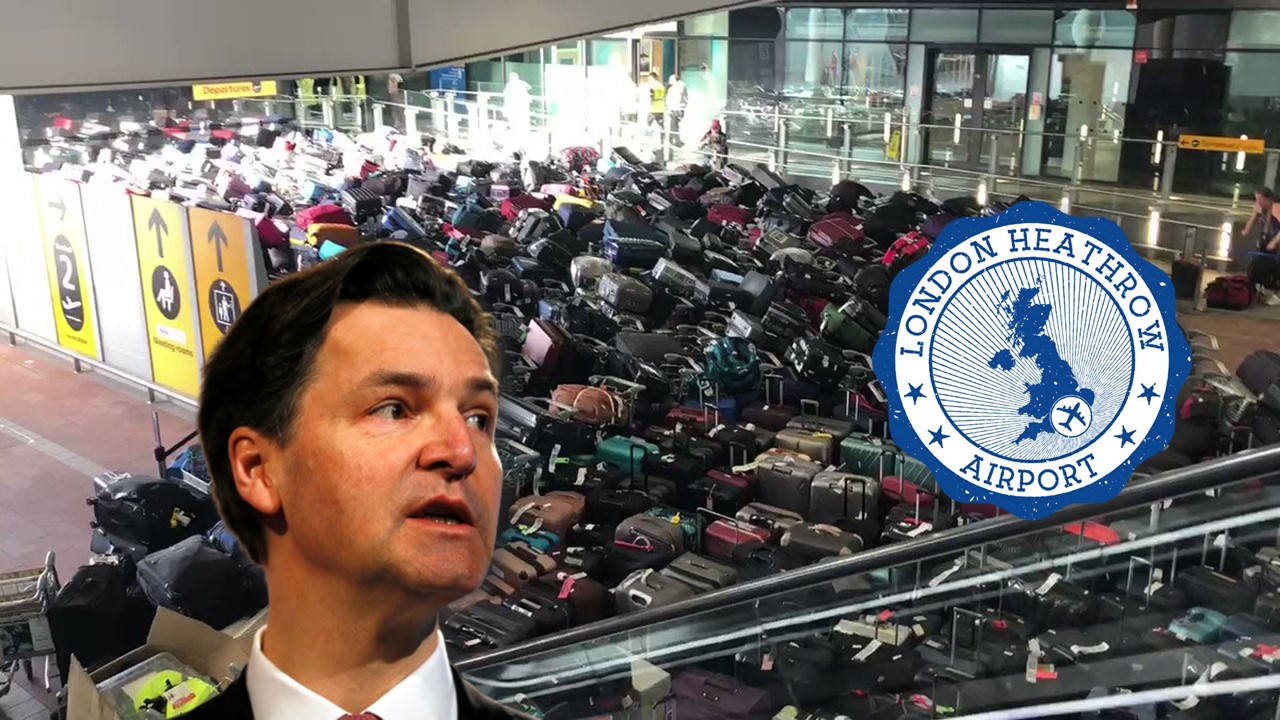In the wake of Rishi Sunak being the frontrunner for the prime ministership of the United Kingdom, geography is being pushed as migrant heaven by few intellectuals. Well, it may not be a heaven, but definitely, the United Kingdom needs them in order to sustain its economy. The proof of the pudding lies in the fact that London’s Heathrow airport is in trouble.
Heathrow goes haywire
Authorities at the Heathrow airport are forced to apply a two-month cap on the number of passengers it can handle. Up until September 11, Heathrow airport will only be handling 1,00,000 passengers on a daily basis. Airlines operating flights to and from the given airport have been asked to abstain from selling tickets for people wishing to watch British summer. Apparently, the airport cannot even handle cargoes which are coming along with the passengers. According to a report by New York Times, Delta Air Lines flew a special plane to deliver 1,000 stranded baggage from London to Detroit.
Explicitly stating that action has been taken to provide safe passage to the baggage, John Holland-Kaye, Heathrow’s CEO, said, “Our objective is to protect flights for the vast majority of passengers at Heathrow this summer and to give confidence that everyone who does travel through the airport will have a safe and reliable journey and arrive at their destination with their bags. We recognise that this will mean some summer journeys will either be moved to another day, another airport or be cancelled and we apologise to those whose travel plans are affected.”
Read more: In your face European Union! UK signs a bigger and better post-Brexit trade deal with Japan
Advisory not taken lightly by airlines
Heathrow Airport is the largest of the six international airports serving the city of London. The airport serves 203 destinations in 84 countries. It handles 102 flights between India and London. In 2021, it was the seventh busiest airport in the world when it came to handling international traffic. The extent of the problem caused due to capping is reflected in responses by airlines as well.
Bhd, a Malaysian Airlines has asked Heathrow Airport to be fair in passenger distribution pattern to the respective airlines. It had to reschedule its flights to ensure that it does not have to pay back the fares to consumers. Emirates airline in fact refused to comply with the orders. It directly called out handlers of the airport by calling them incompetent. According to Emirates, Heathrow Airport was passing the entire burden of its own created Armageddon to the airlines and travellers.
Read more: Could Rishi Sunak be the new Prime Minister of the United Kingdom? Well, his party thinks so
Brexit hurt big time
But the problem is deeper than what appears on the surface. Six years after Britishers opted out of the European Union, they have been unable to cope with the consequences. According to its own estimate by the UK government, over the long term, Brexit would have cost 4 per cent of GDP to the Brexit exchequer. Well, the country actually lost 5.2 per cent. The loss was fuelled by Banks taking away more than $1 trillion out of Britain. Moreover, over 40 per cent of the UK’s overseas consumers remain in European Union. The tightened norms leading to increased red-tapism in Britain-EU trade further complicated the issue.
Read more: BREXIT: Rise of the Right Wing and the future of Europe
These exports mainly came from small businesses of the geography. As of October last year, UK-EU trade was down by 15.7 per cent, more than what the government had predicted. This was caused by negative sentiments around exports, which led to businesses being shut down creating unemployment in the country, especially during the pandemic. Though the government was able to skirt off unemployment-related discontentment during the Covid-19 lockdowns, it did not help in the aftermath of the pandemic.
Unstable Job market
After lockdowns were lifted, Britain faced a double whammy of its locals being available for employment but at the same time shortage of skilled labour force. Due to Brexit, more than 2 lakh people who were enjoying EU-related freedom to work in the country left British shores. Hospitality and retail were the ones most hit by the labour crisis. Additionally, a large number of nationals from the EU used to drive tankers containing oil.
The migration of EU workers further exacerbated the supply chain crisis leading to a higher cost of living. In June this year, inflation in the country was clocked at 9.4 per cent, its highest in 40 years. Boris Johnson did focus on training more locals for driving and other jobs, but these could not bring significant changes. Though, it is also true that these changes impact long-term economic fundamentals rather than impacting immediate concerns of the economy.
Yes, unemployment numbers have gone down in the United Kingdom. Same holds true for London as well. But the workers have diversified their niches. They no longer want to fully dedicate themselves to a particular sector. Those who are unskilled are ready for any kind of job, but Airports being infrastructure of national prestige won’t hire them. They need to increase pay and add more incentives to avoid such crises in future.
Support TFI:
Support us to strengthen the ‘Right’ ideology of cultural nationalism by purchasing the best quality garments from TFI-STORE.COM.

